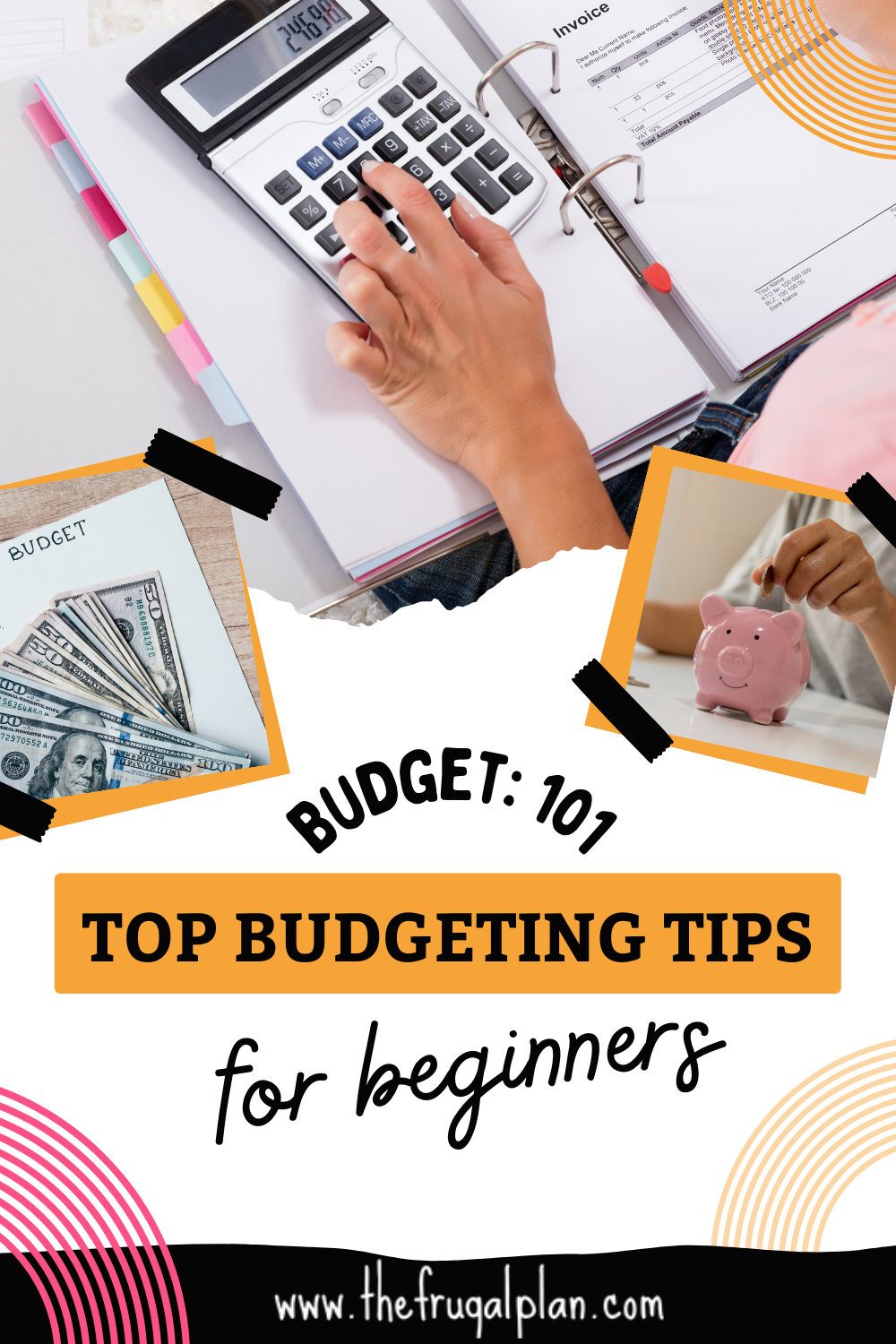BUDGET 101: TOP BUDGETING TIPS FOR BEGINNERS IN 2023
DISCLOSURE: This post may contain affiliate links. This means that I may receive a commission for purchases made through the links on this website, but at no extra cost to you. Please click here for complete disclosure.
LAST UPDATED ON: 01/08/2024
Are you looking for budget tips?
Here you will find the top 7 budgeting tips for beginners.
So, what are the top budget tips for beginners?
When done right, budgeting will save you a lot of money. However, when creating your budget, it's best to be realistic as possible.
The more accurate you are with your budget, the easier it is to maintain and get under control.
Below you will find the top budgeting tips for beginners.
1. CREATE A BUDGET AND TRACK SPENDING
The first rule is creating a realistic budget and tracking your sending. Having a realistic budget and tracking your spending is very important.
Need help creating a budget? Click here to learn more!
2. PAY YOURSELF FIRST
One of the easiest ways to get out of the motions of living paycheck to paycheck is to pay yourself first.
Always try to save 10% or more of each paycheck after taxes. Click here for more saving tips!
3. SET SHORT-TERM & LONG-TERM SAVING GOALS
You should always have both short-term and long-term saving goals.
Short-term saving goals you can accomplish in two years or less. Below are some examples of short-term saving goals.
DOWN PAYMENT FOR A CAR
BUYING A PET
VACATION
EMERGENCY FUND
And long-term saving goals usually take a lot longer to accomplish. Below are examples of long-term goals.
RETIREMENT
BUY A HOUSE
BUYING A VACATION HOME
PAYING FOR KIDS COLLEGE
It's important to categorize your savings based on whether your goal is short-term or long-term. Keep your money separate from any other money.
4. EMERGENCY FUND/RAINY DAY FUND
Do you have an emergency fund? If not, consider starting one. Start by saving at least $1,000.00.
After saving $1,0000.00, work on growing your emergency fund to three to six months of your monthly expenses.
5. GET YOUR SPOUSE INVOLVED
If you are in a relationship, you and your spouse should be on the same page. The easiest way to do this is to have a simple conversation; this way, you are both on the same page.
6. CHANGE YOUR LIFESTYLE
If you have bad or expensive habits, now is a great time to think about changing. Bad habits or expensive habits will keep you broke. So, eliminating your bad habits is necessary.
Below is a list of lifestyle changes you can make today. (There is nothing wrong with treating yourself here and there. But if you want to get your budget under control, you will have to make a few sacrifices.
Stop paying $5.00 to $10.00 daily at coffee shops and make it home. Making your coffee at home will cost about $10.00 or less for the entire month.
Salon trips can run a couple of hundred dollars every few weeks per visit. Save money by doing your facials, hair, nails, and pedicures at home.
Shop eating out! If you love eating out, try making similar meals at home.
Stop smoking. Try to replace smoking with sugar-free gum or another healthier habit.
7. REVIEW REGULARLY
It's important to review your budget regularly. However, check at least twice a week until you get the hang of budgeting.
When you review, check to see what things you can reduce or eliminate altogether.
To Summarize:
CREATE A BUDGET AND TRACK SPENDING
PAY YOURSELF FIRST
SET SHORT-TERM & LONG-TERM SAVING GOALS
EMERGENCY FUND/RAINY DAY FUND
GET YOUR SPOUSE INVOLVED
CHANGE YOUR LIFESTYLE
REVIEW REGULARLY
IN CONCLUSION
Creating a realistic budget is the most important step when starting a new budget. Tracking all of your expenses and working on building an emergency fund is the next most important. What budget action will you take first?





